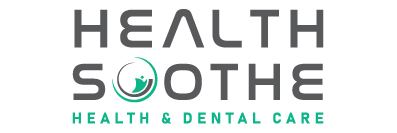Understanding Relapse and Why it Happens
Addiction is a relapsing disease, much like any other chronic illness like diabetes, cancer, or heart disease. This implies that, just as someone with cancer or heart disease may experience a recurrence of symptoms, someone with a substance use problem may experience a relapse of drug and alcohol use. Addiction is, by definition, a chronic condition that can intensify at any time. Relapse into addiction isn't a measure of a person's strength or willpower. It's not a sign of failure if you relapse; it's an indication that your therapy needs to be revised.
The Stages of Relapse
Relapse occurs in three stages: emotional, mental, and physical. Individuals who understand the different stages of abstinence might spot warning indicators that their abstinence is slipping. Each stage is connected with a different pattern of behavior and thinking.
Emotional Relapse: is characterized by a lack of self-care. It happens before one ever considers using. Anxiety, loneliness, hostility, hiding your feelings, not engaging in therapy, and poor eating habits are all warning flags.
Mental Relapse: Think of this stage as a mental battle; half of you wants to use, but the other part doesn't. Individuals with SUD become uncomfortable with themselves when they maintain inadequate self-care and live in emotional relapse for long periods of time. Irritability, dissatisfaction, and restlessness are all symptoms of this dissatisfaction with oneself. Unfortunately, these unpleasant emotions can lead to a build-up of stress, which might lead to the person considering using to escape.
Signs of Mental Relapse Include:
- Minimizing past use and the consequences related to using
- Glamorizing and romanticizing past use and/or lifestyle
- Craving drugs and/or alcohol
- Thinking of ways to control drug and/or alcohol use
- Planning a relapse
Physical Relapse: This stage occurs when a person with SUD begins to use drugs and/or alcohol again. All of the feelings and ideas the individual has been dealing with start to overwhelm them at this point, and they feel forced to drink or take drugs once more. Relapse isn't something that happens overnight. It starts with your emotions and then moves on to your thinking. Finally, it begins to influence your conduct. Understanding these stages might assist you in preventing physical relapse.
Relapse Triggers
It's not unusual for people who are recovering from addictions to relapse at least once. Some people even go off the wagon multiple times before finally becoming sober. Impulses or cravings might be triggered by your surroundings. Things that remind you of using alcohol or drugs or getting high; emotional discomfort like worry or anger; or things you can't seem to pinpoint. Here are some common triggers to avoid:
- Stress
- People or Places Connected to the Addictive Behavior
- Physical fatigue
- Depression
- Chronic pain
- Unemployment
- Negative mindset/self-pity
- Lack of recovery support and aftercare
Tips for Minimizing the Risk of Relapse
- Interacting with Others. Speak with someone in person or over the phone, such as a friend, family member, or sponsor. Attend meetings whenever possible. Keep a list of people's names and phone numbers saved in your contacts.
- Avoiding triggering situations. Resist going to pubs, parties, or clubs where you believe it will be even harder to control your urges. Avoid socializing with people who you believe could try to persuade you to use alcohol or drugs.
- Participate in a self-help group. Twelve-step programs like Alcoholics Anonymous and Narcotics Anonymous can provide a nonjudgmental environment in which to discuss your cravings and discover how other people have dealt with similar problems.
- Self-care is important. It's critical to look after oneself emotionally and physically. Self-care is any activity that provides you joy, such as yoga, meditation, exercise, reading, writing, and eating nutritious foods. These activities can help you reduce urges by lowering tension and stress.
- Decide what you want to change and how you want to change it. Knowing what you're aiming towards is another important part of your relapse prevention strategy. Create a list of objectives that highlight your motives for quitting your addiction. What do you want to do in recovery? What is most important to you: your work, your family, your relationships, or something else entirely? It is critical to set your objectives so that you may continue to work toward them with the assistance of an addiction treatment facility.
How Can We Help?
Millions of people are afflicted with drug or alcohol addiction. Furthermore, the majority of people are unable to quit without the assistance of a medical detox program. This is due to the fact that the ordinary individual is unaware of the relapse prevention measures that are beneficial to long-term sobriety.
Having a relapse prevention plan can give you the confidence and support you need when dealing with drug and alcohol addiction. Our team at Ethan Crossing addiction treatment can guide you every step of the way towards finding a plan that you are confident in. Reach out to us today!



